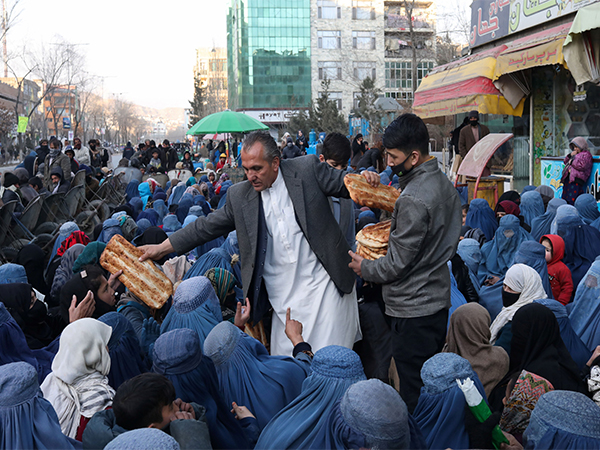
Kabul: Hunger in Afghanistan is worsening, with the World Food Programme (WFP) warning it needs $539 million over the next six months to address the country's growing food crisis, Khaama Press reported.
The agency said on Sunday that returning women and children are among the most vulnerable, facing the harshest effects of rising food insecurity.
According to Khaama Press, the WFP stated that the situation is deteriorating rapidly, as more Afghan families struggle to afford basic food amid widespread poverty and economic instability.
"Two out of every three women leading households are unable to feed their families," WFP said, highlighting the dire condition that has left millions in desperate need of assistance.
The organisation also reported that 3.5 million Afghan children are already suffering from malnutrition, further intensifying the humanitarian emergency.
As per Khaama Press, the WFP said that 10 million people across Afghanistan now rely on humanitarian aid for survival, placing the country among the highest globally in terms of food insecurity.
"This escalating crisis highlights the urgent need for sustained international support," the WFP noted, warning that without immediate funding, the risk of widespread hunger and deeper suffering--especially among vulnerable women and children--will only increase in the months ahead, Khaama Press reported.
Worsening the humanitarian emergency, the United Nations Human Settlements Programme (UN-Habitat) has revealed that Kabul now houses over 40 per cent of Afghanistan's total urban population, with most residents living in unsafe informal settlements, Khaama Press reported.
According to the agency, four out of every five people in Kabul reside in informal areas that lack basic infrastructure and are highly exposed to environmental hazards.
UN-Habitat warned that these communities "face increasing risks from extreme weather events driven by climate change," placing millions of residents in danger, as cited by Khaama Press.
The organisation said immediate measures are essential to "strengthen climate resilience and address the unsafe living conditions that dominate the Afghanistan's capital."
The report further pointed out that most returnees to Afghanistan are forced to live in these informal settlements, which frequently lack healthcare, sanitation, and other basic services.
Highlighting the deepening humanitarian and environmental crisis, UN-Habitat noted, "Kabul's fragile housing situation has become both a humanitarian and environmental challenge."
As per Khaama Press, the agency emphasised that without urgent investment in infrastructure, climate adaptation, and essential services, "Kabul's most vulnerable citizens will remain trapped in cycles of risk and deprivation."